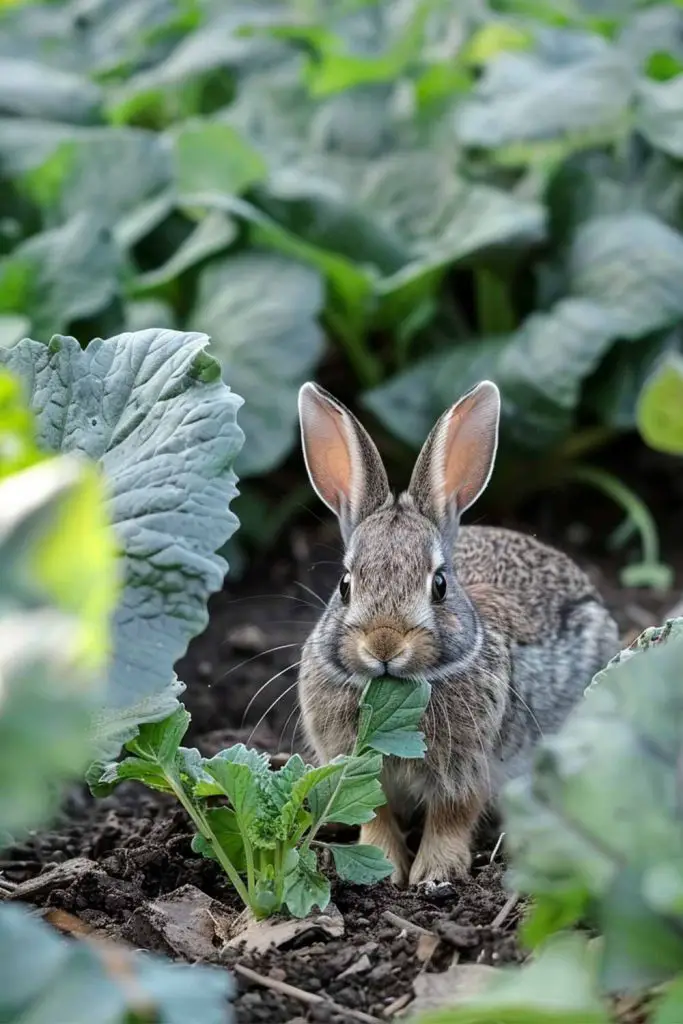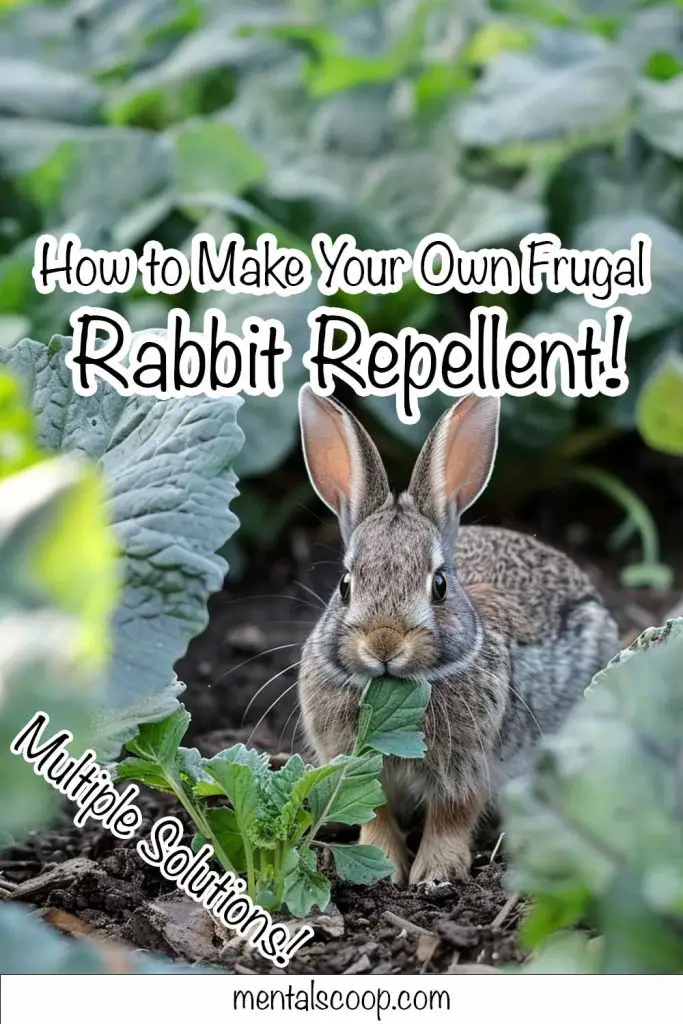How to Make Your Own Frugal Rabbit Repellent!

Gardening enthusiasts and homeowners alike know the frustration of finding their beloved plants nibbled down to stubs by pesky rabbits. While commercial repellents can be effective, they often come with a hefty price tag.
Fortunately, you can make your own rabbit repellent using simple, cost-effective ingredients. In this guide, we’ll explore various DIY rabbit repellents, ensuring your garden stays vibrant and bunny-free without breaking the bank.
Understanding Rabbit Behavior: Why Repellents Work
Rabbits are adorable but notorious for their insatiable appetite for garden plants. To create an effective repellent, it’s essential to understand their behavior and what deters them. Rabbits rely heavily on their sense of smell and taste to navigate and select food, making these senses key targets for repellents.
Common Ingredients in DIY Rabbit Repellents
Most homemade rabbit repellents use ingredients that are readily available in your kitchen or garden. Common ingredients include:
- Garlic: Its strong smell deters rabbits.
- Hot Peppers: Capsaicin in peppers is unpleasant for rabbits.
- Eggs: The sulfur compounds in eggs are repulsive to rabbits.
- Vinegar: Its strong odor can keep rabbits at bay.
- Essential Oils: Oils like peppermint and lavender can deter rabbits.
The Classic Garlic and Chili Pepper Spray
A popular and effective rabbit repellent is a garlic and chili pepper spray. Here’s how you can make it:
Ingredients:
- 1 gallon of water
- 5 cloves of garlic, minced
- 1 tablespoon of crushed red pepper flakes
- 1 tablespoon of dish soap
Instructions:
- Mix the garlic and red pepper flakes in the gallon of water.
- Let the mixture sit for 24 hours to fully infuse.
- Strain the liquid to remove the solid pieces.
- Add the dish soap and mix well.
- Pour the mixture into a spray bottle and apply it to your plants.
This mixture’s strong scent and taste will deter rabbits from nibbling on your plants.
Using Egg-Based Repellents
Egg-based repellents are another effective way to keep rabbits away. The smell of rotten eggs is particularly offensive to rabbits.
Ingredients:
- 1 egg
- 1 quart of water
- 1 tablespoon of dish soap
Instructions:
- Blend the egg and water until smooth.
- Add the dish soap and mix well.
- Pour the mixture into a spray bottle.
- Spray it on plants and around the garden perimeter.
This method not only repels rabbits but can also deter other pests like deer.
The Power of Vinegar and Essential Oils
Vinegar and essential oils are potent rabbit deterrents. The strong smell of vinegar combined with essential oils can create a barrier that rabbits will avoid.
Ingredients:
- 1 cup of white vinegar
- 10 drops of peppermint essential oil
- 10 drops of lavender essential oil
- 1 quart of water
Instructions:
- Mix the vinegar, essential oils, and water in a spray bottle.
- Shake well before each use.
- Spray around the garden and on plants.
This mixture is not only effective but also leaves your garden smelling fresh.
Soap-Based Repellents: A Simple Solution
Soap is an easy and frugal way to repel rabbits. The strong scent of soap can mask the smell of plants and deter rabbits from feeding.
Instructions:
- Grate a bar of strong-smelling soap (like Irish Spring).
- Sprinkle the soap shavings around the garden or hang them in mesh bags near your plants.
This low-cost method is surprisingly effective and easy to maintain.
Companion Planting: Nature’s Repellent
Certain plants naturally repel rabbits. By incorporating these plants into your garden, you can create a natural barrier.
Rabbit-Repelling Plants:
- Marigolds: Their strong scent deters rabbits.
- Lavender: Rabbits dislike its strong aroma.
- Onions and Garlic: Both have strong smells that rabbits avoid.
- Peppermint: Its potent scent keeps rabbits at bay.
Planting these around the perimeter or interspersed with your other plants can help protect your garden.
Fencing: The Physical Barrier Solution
While not exactly a DIY repellent, installing a simple fence can be an effective way to keep rabbits out of your garden.
Instructions:
- Use chicken wire or mesh fencing with small holes (1-inch or smaller).
- Ensure the fence is at least 2 feet high.
- Bury the bottom of the fence at least 6 inches into the ground to prevent rabbits from burrowing underneath.
Fencing is a one-time investment that can provide long-term protection.
Maintenance and Tips for Long-Lasting Results
To ensure the effectiveness of your DIY rabbit repellent, regular maintenance is key.
Tips:
- Reapply after Rain: Rain can wash away repellents, so reapply them after it rains.
- Rotate Repellents: Rabbits can get used to certain smells, so rotate between different repellents to keep them effective.
- Regular Monitoring: Keep an eye on your garden and reapply repellents as needed.
By following these tips and regularly maintaining your garden, you can enjoy a rabbit-free garden throughout the growing season.
Creating your own frugal rabbit repellent is not only cost-effective but also environmentally friendly. With these simple ingredients and methods, you can protect your garden from hungry rabbits without resorting to expensive commercial products. Happy gardening!

More interesting articles you may be interested in reading:

